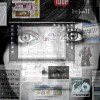In many of my recent posts, I have talked about the principles behind personal mastery and its relevance to our lives and the world around us. In this post, I would like to highlight how this journey can become an important source of change in our lives, particularly when seen in the context of the ever non-conclusive, biological, social, psychological, and neurological, debate about “nature versus nurture”.
The other day, my wife read out my supposed personality traits from a horoscope website and I was amazed at the quality of matches. While I am not one taken to reading the weekly forecasts or be fatalistic about the future, the accuracy of the assessment did leave me with a couple of questions – is the deepest part of my personality predetermined at birth or can it change? What could create the change? And, that’s what has led me to this article.
The genetic DNA imprint is probably the single most significant factor of the future destiny of a child at birth. The DNA comprising of three billion bases, tied up in one unique combination out of zillions of possible sequences, provides the first perspective of the predisposed personality traits, likes, dislikes, health patterns and inclinations of the child. If it weren’t for the power of genes (and nature), two siblings who have been provided largely the same upbringing, won’t turn out so different in their attitudes, preferences, and behavior – one is totally organized, very expressive, and loves art; the other forgetful, very analytical and crazy about sports. In a spiritual sense, each child is the product of that special circumstance of universe which brings together the ancestral history of several past generations in a unique manner. All medical examinations begin with checking the medical history of the parents and grand parents; sounds like nothing could be more important than the genes we are born with.
But then, decades of psychology research would have us believe in the power of the childhood experiences – about how children of preoccupied parents grow up to be avoidant individuals or how sometimes loved and sometimes ignored children result in anxious adults. It’s the values people imbibe about money, relationships, hard work, careers and empathy during childhood that drive their attitudes and behavior as adults. Research done on identical twins brought up by different parents conclusively demonstrates the difference in personalities of siblings shaped by the environment. Extensive psychological research also proves that childhood experiences can predict the personality traits in adults in terms of their being secure, anxious, or avoidant, with up to 70% accuracy. There’s also the theory of John Crabbe from Oregon Health and Science University, that while we are born with a diverse range of genes, it’s the upbringing that determines which genes get better expressed – making a strong case for nurturing.
The question is – while most of science will agree with a healthy balance between nature and nurture, are these the only factors that determine the future path of a human being. What else allows for significant personal growth to happen– teachers, mentors, reformative relationships? I believe an inner journey of self-awareness can provide a powerful tool for fundamental transformations to take place. Looking deeply within ourselves can allow us to eventually transcend the psychic baggage of genes or upbringing and reach out to our true self – which is already and always, complete and whole. That’s where the idea of personal mastery comes in. To me, personal mastery is the journey of self-discovery leading to consistently living the purpose of one’s life. It requires a high emphasis on self-knowledge, clarity of one’s personal vision and its interconnectedness with the people and the world around.
Such a journey can allow a person to find a clearer purpose in life, build higher self-esteem, have greater balance and harmony in relationships and eventually, create a happier, peaceful and joyous life. Some are born with it, some get nurtured that way, but all of us can create it.











 Personal Change and World Peace!
Personal Change and World Peace! What It Takes To Be The Adult In The Room
What It Takes To Be The Adult In The Room Addiction of Being ‘Switched On’ 24/7
Addiction of Being ‘Switched On’ 24/7